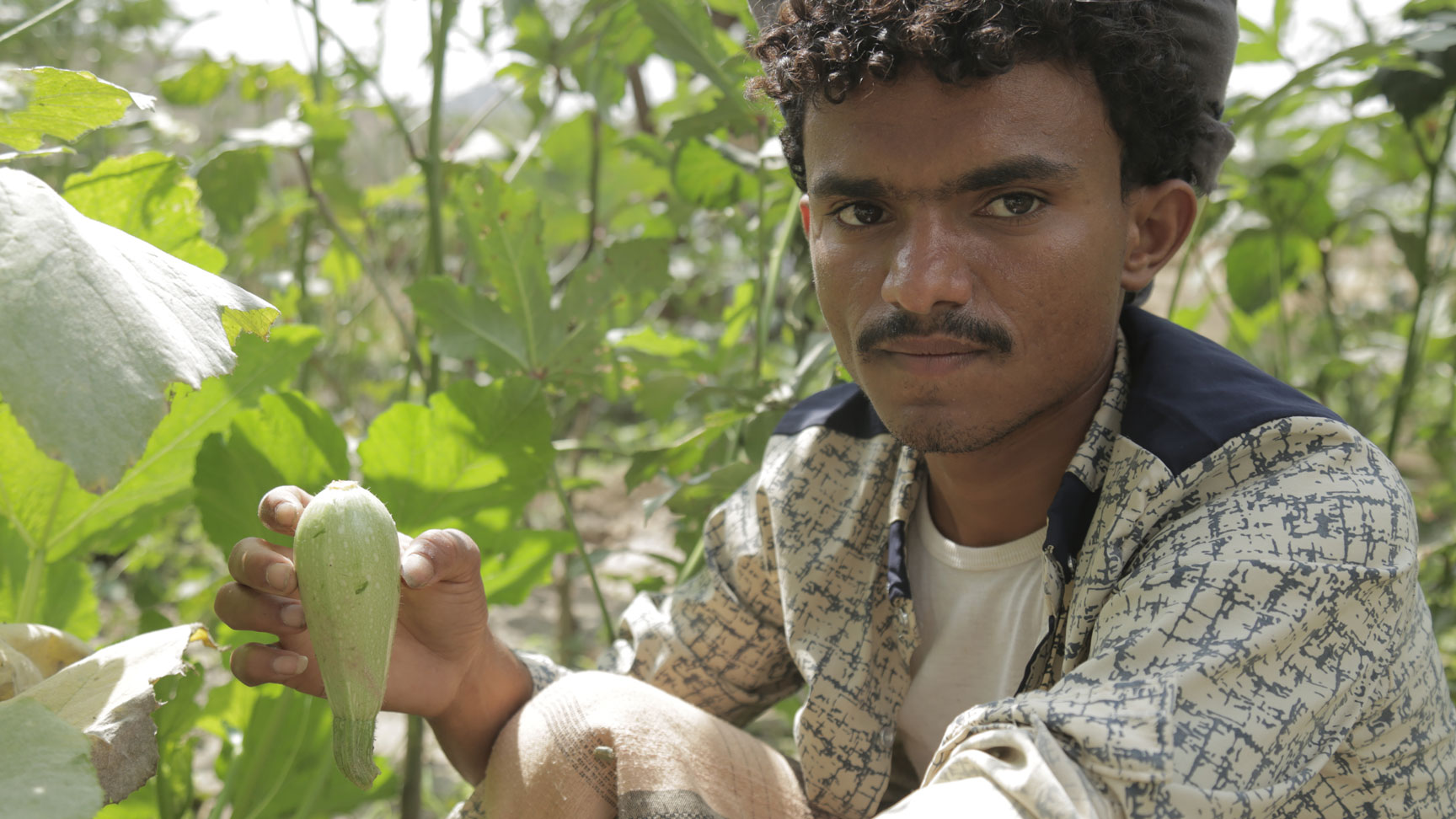Reducing the negative effects of climate change on Yemeni farmers, helping them adapt and live under these variables, and at the same time improving food security levels and access to food by increasing agricultural and livestock production, and increasing the area of cultivated land, as a strategy that the Public Works Project is working to achieve through projects implemented in the agricultural sector, which corresponds to the current conditions and the severity of the need for Yemeni farmers to provide food for their families and protect their lands from erosion due to floodwater.
Climate change kills agriculture in Yemen
The decline in the food security index for Yemenis is the most prominent challenge, which has become a factor of concern locally and among international donors, as a result of the negative effects of climate change that killed the agricultural sector in Yemen, as a result of drought and fluctuating rainfall in the off-seasons of agriculture, not to mention the floods and torrents that washed away the green, the abs and the agricultural land with its crops and livestock with homes, not to mention the international fluctuations in the field of food and urban operations to export some products such as grains and other food commodities and what is produced. This is due to the rise in food prices to levels that the Yemeni citizen is unable to deal with, offset by the very bad economic and living conditions that Yemen is experiencing, according to the description of the United Nations.
Producing food locally, increasing the area of agricultural land, and exploiting all available and possible opportunities in Yemen with the aim of raising the productivity of various types of agricultural and animal crops, is a goal of the Public Works Project through its interventions in the agriculture and irrigation sector, recognizing by the Project Management Unit the importance of agriculture in enhancing food security for the community, and improving the standard of living of farmers and their families .
The implemented agricultural projects and their positive effects environmentally and economically experienced by farmers in their daily lives by increasing irrigated agricultural areas, increasing agricultural and livestock production, and protecting agricultural lands from torrential dredging and desertification, where the public works project, funded by the World Bank and in partnership with the United Nations Development Program in the agriculture and irrigation sector by implementing projects with rapid environmental and economic feasibility, which contribute to mitigating the negative impact of climate change on farmers, through the implementation of rainwater harvesting tanks, irrigation channels, and agricultural land protection projects that contributed to improving the level of food security for farmers and their families, and provided a sustainable source of income for them.
Achievements
During the period January-December 2023, 56 projects were completed in the agriculture and irrigation sector at a cost of $ 4.9 million, benefiting about 81,000 farmers, and 113 temporary jobs were created for a month-worker.
Table ( 2) lists the completed projects in the agriculture and irrigation sector during the period January-December 2023 - cumulatively.
|
Indicators of completed projects in the agriculture and irrigation sector for the year 2023 - cumulative |
||
|
Statement |
Projects Completed January - December 2023 |
cumulatively for the third and fourth stages only |
|
Number of Projects |
56 |
1,973 |
|
Cost in dollars |
4,908,793 |
169,611,119 |
|
Beneficiaries (population) |
80,999 |
5,515,438 |
|
Realized Labor Worker - Month |
113,824 |
328,137 |




